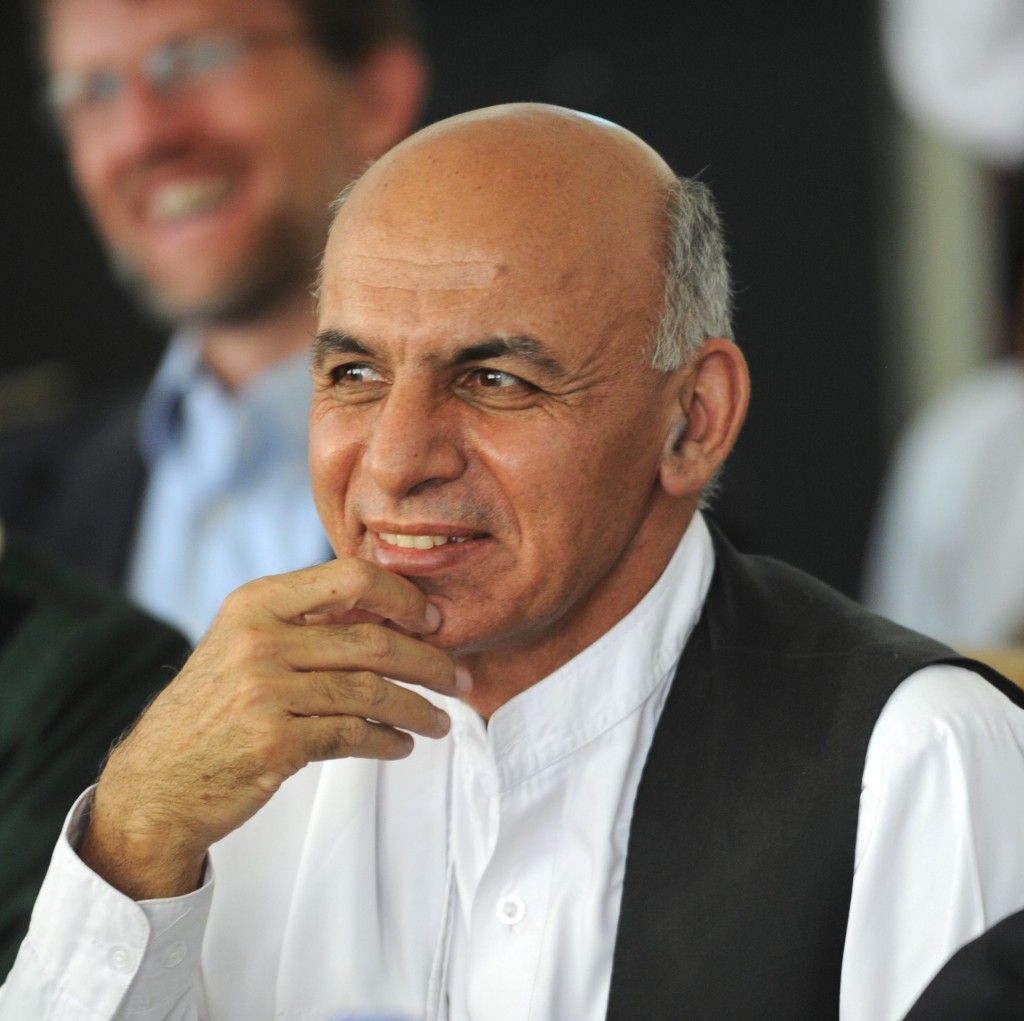
KABUL, Afghanistan — President Ashraf Ghani has ordered a top-to-bottom review of the operations of Afghanistan’s defense forces, including discussing the resumption of controversial night raids banned by his predecessor.
The move appears aimed at revamping the military for the fight against the Taliban amid new indications that U.S. and international forces will play a greater role than initially envisaged after the 13-year U.S.-led combat mission formally ends next month.
The wholesale review is already underway, presidential spokesman Nafizullah Salarzai told The Associated Press, saying Ghani had instructed the National Security Council to “work on a manual of guidelines and standards for military operations.”
Under new guidelines quietly approved by President Barack Obama, U.S. troops may once again engage Taliban fighters, not just al-Qaida terrorists, U.S. administration officials confirmed last week. Until Obama broadened the guidelines, U.S. forces were to have limited Afghanistan operations to counterterrorism missions against al-Qaida after this year, said the officials, who spoke on condition of anonymity because they were not authorized to discuss Obama’s decisions by name.
The emerging rethink in both Kabul and the U.S. appears linked, at least in part, to this year’s successes by jihadi radicals in Syria and especially Iraq – which have made the December 2011 pullout from Iraq seem less successful and forced a reengagement there by the West.
Salarzai would not give precise details of what military procedures were under review, though he said the discussions include a possible lifting of the ban on night raids. First Deputy President Abdul Rashid Dostum said the raids might resume early next year.
Both underlined that the ban has not yet been lifted. “This is being worked on and is not yet final,” Salarzai said.
Resuming night raids would be a significant shift. The operations, in which Afghan and U.S. Special Forces entered homes to search for insurgents under cover of darkness using night-vision goggles, were banned by former president Hamid Karzai in 2011.
The raids were highly unpopular with the Afghan public, with many people viewing them as a violation of privacy and of the traditional sequestering of women. The military, however, regarded them as essential to the anti-Taliban fight, and has been lobbying to resume them ever since.
Salarzai gave no timetable for the review, saying only that Ghani “will personally look at that manual to ensure it will not cause any risk to Afghan civilians or security forces.”
The overhaul appears to include every aspect of the way the Afghan military operates, from training to staffing issues to battlefield tactics. The military has faced a host of issues even as it has won some praise after taking the lead in fighting the Taliban over the past year.
Among its many problems are a high attrition rate, low literacy rates, controversies over pay and increased casualties. Moreover, stepped up attacks by the Taliban on the capital, Kabul, in recent weeks have raised questions over how they were able to breach security multiple times, amid concerns about intelligence failures and collusion with militants within the forces.
The review is an indication that Ghani will take a hands-on approach to defense against the intensifying insurgency. Currently, the Afghan National Security Forces are thinly spread across the country, as the Taliban has sought to extend its influence beyond its traditional southern and eastern strongholds, to areas in the north and northwest where they have put government forces under extreme pressure.
As a result, Afghan forces have suffered record – and, according to the second-ranking American commander in Afghanistan, Lt. Gen. Jospeh Anderson, unsustainable – losses since taking the lead in the anti-insurgent fight from international forces in the middle of last year.
If the ban on night raids is lifted, observers assess that the U.S. would have a role in the operations. That would go beyond what was outlined in the security pact ratified days ago by the Afghan parliament. That agreement – negotiated about a year ago – initially allowed for leaving a residual training and advisory presence of 12,000 U.S. and NATO troops.
Analyst Jawed Kohistani said insurgents had benefited from the night raid ban, knowing that their movements would not be tracked. “Night operations are very effective as they are conducted on the basis of strong intelligence, deploy high technology, have fewer or even no civilian casualties, and prevent a wide range of enemy activities, such as planting roadside bombs,” he said.
Having already referred to himself publicly as commander in chief, Ghani has signaled his intention to seize the upper hand in the war against the Taliban, first by assessing the strength of his forces, and then by taking control on the battlefield, choosing the time and location of the fight.
A continued combat presence – including air support – from the United States and NATO will be a welcome factor as Ghani’s battle plan unfolds.
Ghani was inaugurated in September, after a protracted electoral process, and immediately signed a bilateral security agreement with Washington and a status of forces agreement with NATO. His predecessor Hamid Karzai had held up the agreements.
Ghani’s cooperation with international supporters has enraged the Taliban and other insurgent groups, who have escalated attacks across the country, recently specifically targeting government, security and foreign installations, especially in Kabul.
The agreements were ratified by parliament’s lower house on Sunday. They are expected to be approved by the upper house and published ahead of Ghani’s attendance in Brussels next week at NATO’s foreign ministerial meeting.
That meeting will endorse the end of NATO’s International Security Assistance Force on Dec. 31 and its replacement, the Resolute Support Mission, from Jan. 1.
Associated Press writers Rahim Faiez and Amir Shah contributed to this report.